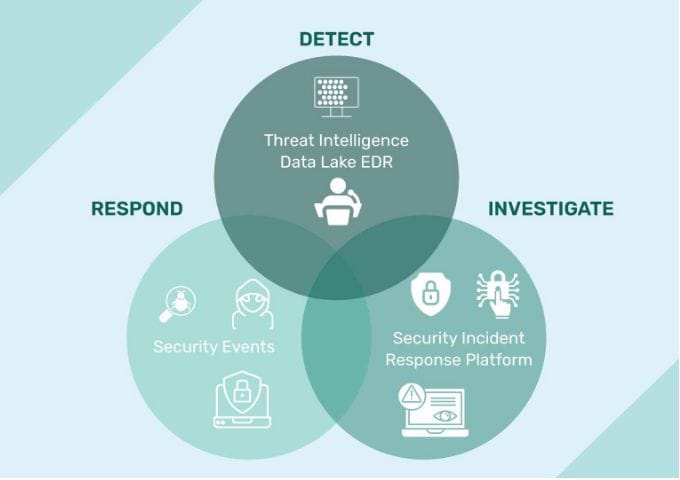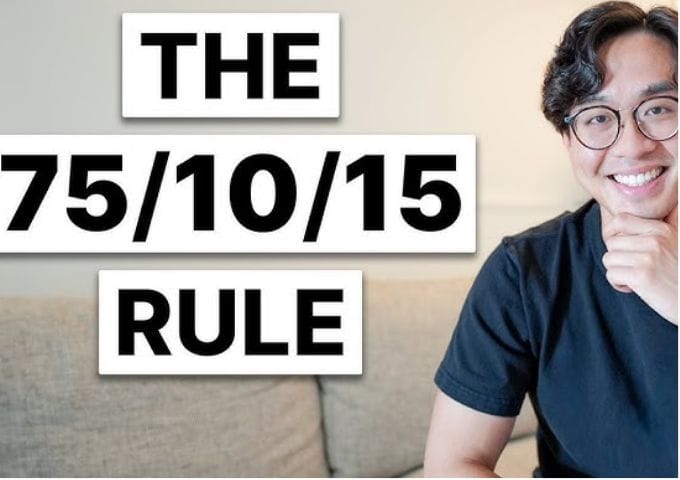Estate Planning: Everything You NEED To Know About Estate Planning (2024/2025)
Are you among the 60% of Americans without a will? This isn’t just a statistic; it’s a wakeup call. Discover how a living trust can be the solution to protecting your assets and securing your legacy.
Common Misconceptions About Estate Planning
Many people, I’ve found, delay estate planning because they think, “Oh, it’s so complicated,” or they have misconceptions about the necessity for it. They say, “Oh, you know, I’m married. My spouse can just step in and take care of things if something happens to me. I don’t need to worry about estate planning.” Nothing could be further from the truth. The risks of not having a living trust plan in place include things like delays for probate court when a spouse passes away or when both of you die.
The Dangers of Public Access to Probate Information
Public access to the information about your estate is another issue; many probate courts are now online, so people can very easily find out information about what’s in your estate and who your beneficiaries are. Then, you’ve got the other thing that comes up more often than I’d like to see: disputes among heirs or beneficiaries. Disputes among the people left from your family over what they’re going to get from your estate can lead to unnecessary stress and conflict.
Advantages of a Living Trust
A living trust provides a private and efficient way to handle your estate. With a living trust, you can ensure that your assets are managed according to your wishes without the need for any court intervention. One of the key things to understand about avoiding court intervention is the time delay involved. Your attorney that you hire to handle probate doesn’t control the way that the court works; some courts are efficient, while others are just, frankly, not.
Understanding the Probate Process
In addition to the statutory requirements for notice and time periods, the court could just be inefficient, leading to a big delay in moving forward with your probate if you have a will or no plan at all. When you file a probate, you have to notify everybody about the contents of the will, not just people that are necessarily named in the will but also your heirs at law—people who may take from your estate if you died without a will. These could be people that you may have wanted to disinherit; you might not want them to know what’s in your will, but they’re required to receive notice when you notify those people about the filing of the will.
The Risk of Objections in Probate
If they don’t like what’s in it, they have an opportunity to file an objection. In my experience, it’s generally very easy to do that. I’ve seen people file objections without attorneys many times, just by writing a letter to the court and saying, “Hey, I don’t like this will.” The court often bends over backwards to help unrepresented individuals who are appearing in probate court, so it can be a sort of an invitation for a fight—an invitation to delay how long it’s going to take to wrap up your estate.
How Living Trusts Simplify the Process
With a living trust, you avoid all that. You don’t have to notify anybody except the actual beneficiaries that you intend to receive something from the trust, and you don’t have to file anything in court. It can be a great way to really shortcut the process, get things handled more efficiently, save money, and save a lot of time.
Steps to Set Up a Living Trust
So how do you set up a living trust? It involves a few key steps. The first one is you need to hire a lawyer. I’m not going to mince words here; the online will and trust applications that are out there are pretty much garbage. I’ve had to fix a lot of messes that were made by folks who had bought some online downloadable form or used some sort of service out there that’s not an attorney.
The Importance of Hiring an Attorney
The reason you hire an attorney to draft your will is the same reason that you hire a doctor when you’re sick: you don’t know what you don’t know. The fact is that estate planning is complex; there are a lot of different areas of law involved in estate planning and a lot of considerations that need to be brought to bear on your particular circumstances. A computer program is not going to do that for you.
Drafting Your Estate Planning Documents
In my opinion, I am an attorney, but you really need to have an attorney to draft the documents for you and help you through the process of estate planning. The first thing is you hire an attorney. After consultation with you and an understanding of what it is you’re trying to accomplish with your estate plan, the attorney will begin to draft your documents.
The Necessary Documents in a Trust Plan
There are multiple documents involved in a trust plan; it’s not just the trust. The trust is sort of the central document, but you’re going to need a pour-over will, an advanced directive for healthcare, or some sort of healthcare proxy. You’re also going to need a power of attorney, so there are a number of other documents involved in a complete trust plan. The attorney will walk you through drafting those and helping you to design the plan.
Executing Your Estate Plan
Once the documents are drafted and you’ve reviewed them, you’ll execute the documents by signing them, and that’s when it all becomes effective. If you’re interested in learning more about how we help families protect their legacies from probate predators and government intrusions, I wrote a free book titled The Ultimate Gift that lays it all out. If you’d like to pick up your free copy of The Ultimate Gift, simply click the link below, give us your address and a credit card for shipping and handling fees, and we’ll ship it out to you free of charge. Read The Ultimate Gift so you can learn how to protect your family.
Funding the Trust: What You Need to Know
At that point, your trust springs into existence, and you can then undertake the next step, which is what we call funding the trust. This means transferring your assets into the trust. Attorneys refer to that as funding the trust, and that includes everything from real estate to bank accounts. Really, I kind of think of it as almost everything you own.
Assets Not Suitable for a Living Trust
There are certain assets that you wouldn’t want to put into a living trust; I’ve done other videos about that. Basically, I think of a living trust as a bucket, and you put essentially all of your assets into it so that the trust will then manage how those assets are distributed when you pass away or if you become incapacitated. The third step is managing the trust.
The Role of the Trustee
As the initial trustee of the trust, you’re in control of the bucket. You’re holding the handle to the bucket, and you can do whatever you want with the assets that are in the trust during your lifetime. You’ve got the flexibility to buy or sell them, invest in whatever you want to, whether it’s Bitcoin or options or whatever it is you want to do. You can pledge them for loans or gift away assets if you want to—whatever you want to do with the assets during your lifetime when you’re serving as the trustee.
Transitioning Control After Your Passing
After you pass away, the person or entity that you’ve chosen as the successor trustee will take over the handle to the bucket and follow the instructions you’ve left in the trust for how you want things to be distributed. That’s what the trustee’s role is—the successor trustee after you pass away.
Benefits of a Living Trust
A living trust has tons of great benefits. We’ve talked about avoiding probate, but that’s not the only thing it allows you to do. It helps you maintain control over your estate even if you become mentally incapacitated. If you had a stroke or developed Alzheimer’s disease and couldn’t manage your own affairs anymore, the trust—the bucket—holds all the assets, and the person you’ve chosen will just take over the bucket and manage it on your behalf.
Privacy and Control in Estate Management
Additionally, it gives you privacy. The trust is a private document; you don’t have to share it with anybody. It’s not filed at any courthouse, and nobody has a right to read the trust other than beneficiaries of the trust. It also gives you great flexibility; as I said, you can do whatever you want with the assets that are in the trust during your lifetime. You have full control, and then after you’ve passed away, your successor trustee has control over the assets in the trust without getting permission from anybody or facing any hassles from banks or anyone else.
Real-Life Scenarios: Living Trusts in Action
Whether you’re a young couple planning for the future or an elderly individual looking to manage your affairs in a private way, a living trust can provide the necessary tools to secure your estate. Let’s explore a couple of real-life scenarios where living trusts have been pivotal.
I had a family recently where the husband passed away, and they had a living trust in place. It was just the smoothest situation; there was no probate necessary. The wife just took over the trust after he passed away, and she was able to live her life without having to worry about going through any kind of probate or deal with any hassles after he passed away.
Now she’s getting older and has developed Alzheimer’s disease. She can’t manage things for herself anymore, so she named her daughter as a co-trustee on the trust. Now her daughter can step in, pay whatever bills there are, and make investment decisions without needing to go to a probate court and ask for permission. There’s no hassle or time delays and no public interference.
Conclusion: Taking Action for Your Family’s Future
It’s a great way to take care of those you love during your lifetime and set things up for when you pass away to make it as easy and efficient as possible for your family to wrap up your affairs for you.
But the one thing I want to leave you with is: don’t wait to make one of the most important decisions you can for your family’s security. Don’t be part of the 60-70% that don’t have a plan. Living trusts are about more than just asset management; they’re about peace of mind. By setting up a living trust, you can ensure that your legacy is preserved exactly as you want and you can avoid the complications of probate, minimize estate taxes, and make things much simpler and easier.
Frequently Asked Questions (FAQs): Estate Planning
1. Do I need a trust if I have a will?
Having a will is important, but it may not be enough to fully address an individual’s estate planning needs. A trust can provide additional benefits that a will cannot, such as avoiding probate and minimizing taxes and expenses.
2. How do I choose a trustee?
Choosing a trustee is an important decision, as the trustee will be responsible for managing the assets in the trust. It is important to choose someone who is trustworthy, reliable, and capable of managing the assets according to the individual’s wishes.
3. What is a power of attorney?
A power of attorney is a legal document that gives someone else the authority to act on an individual’s behalf in legal and financial matters. This can be important in the event that the individual becomes incapacitated and unable to make decisions for themselves.
4. What is a living will?
A living will is a legal document that outlines an individual’s wishes regarding end-of-life medical treatment. It can provide guidance to family members and medical professionals in the event that the individual is unable to make decisions for themselves.
5. Do I need an attorney to create an estate plan or trust?
While it is possible to create an estate plan or trust without an attorney, it is generally recommended to seek the advice of an experienced attorney. An attorney can provide guidance on the best approach for an individual’s specific circumstances and help ensure that the estate plan or trust is legally sound.









